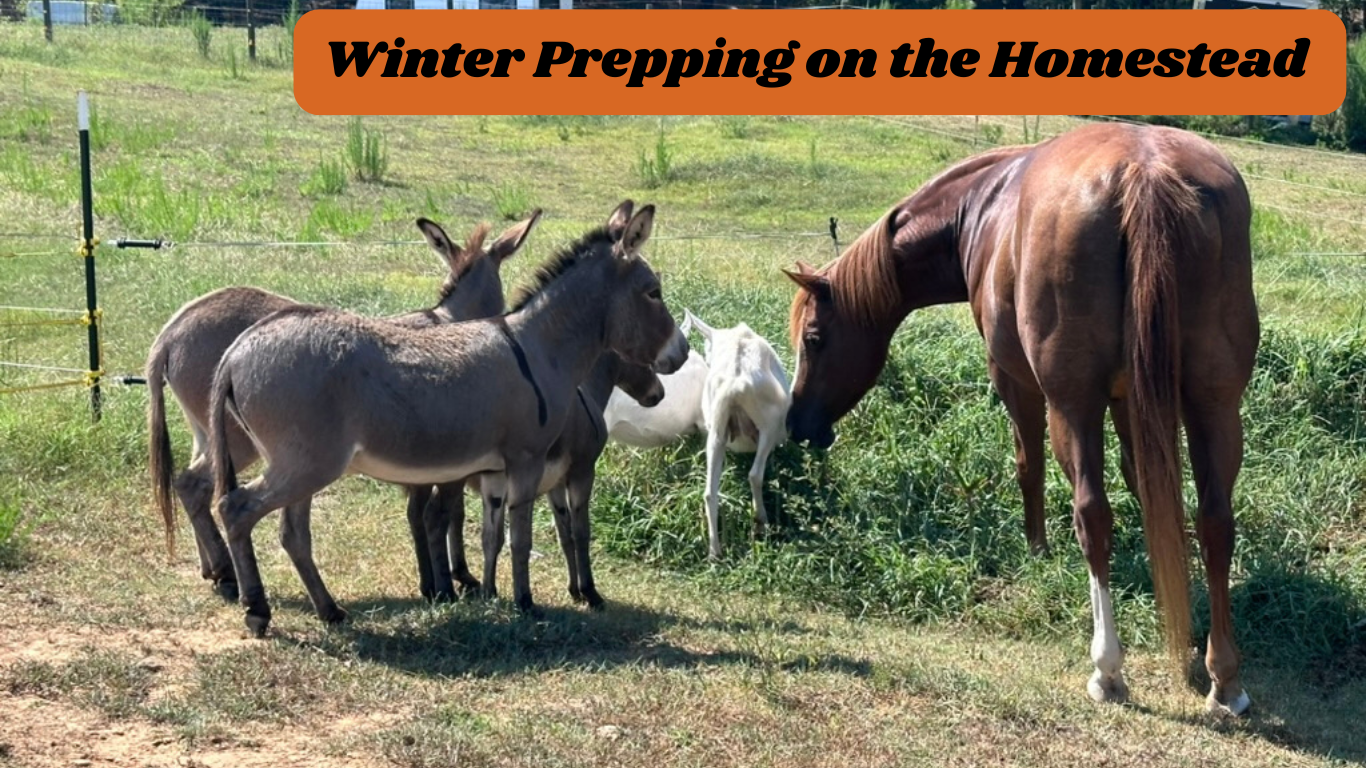As the days grow shorter and temperatures drop, preparing your homestead for winter is crucial, especially if you're living off-grid. Winter can bring its own set of challenges, but with a little planning, you can stay warm, safe, and self-sufficient without breaking the bank. I thought I would share some homesteading tips to help you get through the cold season.
1. **Insulate Your Home Naturally**
Keeping your house warm without relying on expensive heating bills is key for off-grid living. Consider using inexpensive insulation materials like straw bales, old blankets, or foam board. You can also seal gaps around doors and windows with weatherstripping or even DIY options like homemade draft snakes made from fabric and filled with rice or sand. These simple steps can save you a lot of energy!
2. **Prepare Your Water Supply**
Frozen pipes are a homesteader’s worst nightmare. To prevent this, insulate any exposed pipes with foam pipe covers or even old towels wrapped securely and taped in place. If you're on a well, consider installing a small, solar-powered pump to keep your water flowing without relying on grid electricity. In addition, stock up on water in containers—frozen water can double as storage for long-term use if your supply freezes.
3. **Stock Up on Firewood**
If you heat with a wood stove, now is the time to stockpile firewood. Aim for enough wood to last through the winter, as cutting and splitting wood in the snow can be difficult and dangerous. Store your firewood in a dry, covered space to prevent it from getting wet and losing its efficiency. You can also make an inexpensive log holder out of scrap lumber to keep the wood off the ground and dry.
4. **Energy Independence**
When the sun doesn’t shine as much and wind slows down, your energy needs may increase. Make sure your solar panels are clean and positioned correctly. For backup, small propane or kerosene heaters can keep you warm during power outages. It's also helpful to have a backup battery system or generator to power essential devices like lights and a refrigerator.
5. **Animal Care**
If you have livestock, make sure their shelters are insulated. Use hay bales or straw for bedding, as they not only provide warmth but also help absorb moisture. Keep their water unfrozen with simple solutions like a DIY heated water bucket (using a safe, low-cost electric heater or a solar water heater).
6. **Prepare for Winter Gardening**
Even in cold climates, you can continue gardening with a little extra preparation. Start winter crops like kale, carrots, and beets, or invest in cold frames made from old windows. These affordable mini-greenhouses can protect your plants from the worst of the frost and extend your growing season.
By taking a few simple, cost-effective steps, you can ensure that your homestead is ready to face the winter months. With the right preparation, you’ll stay warm, safe, and well-fed, no matter how harsh the season gets.


